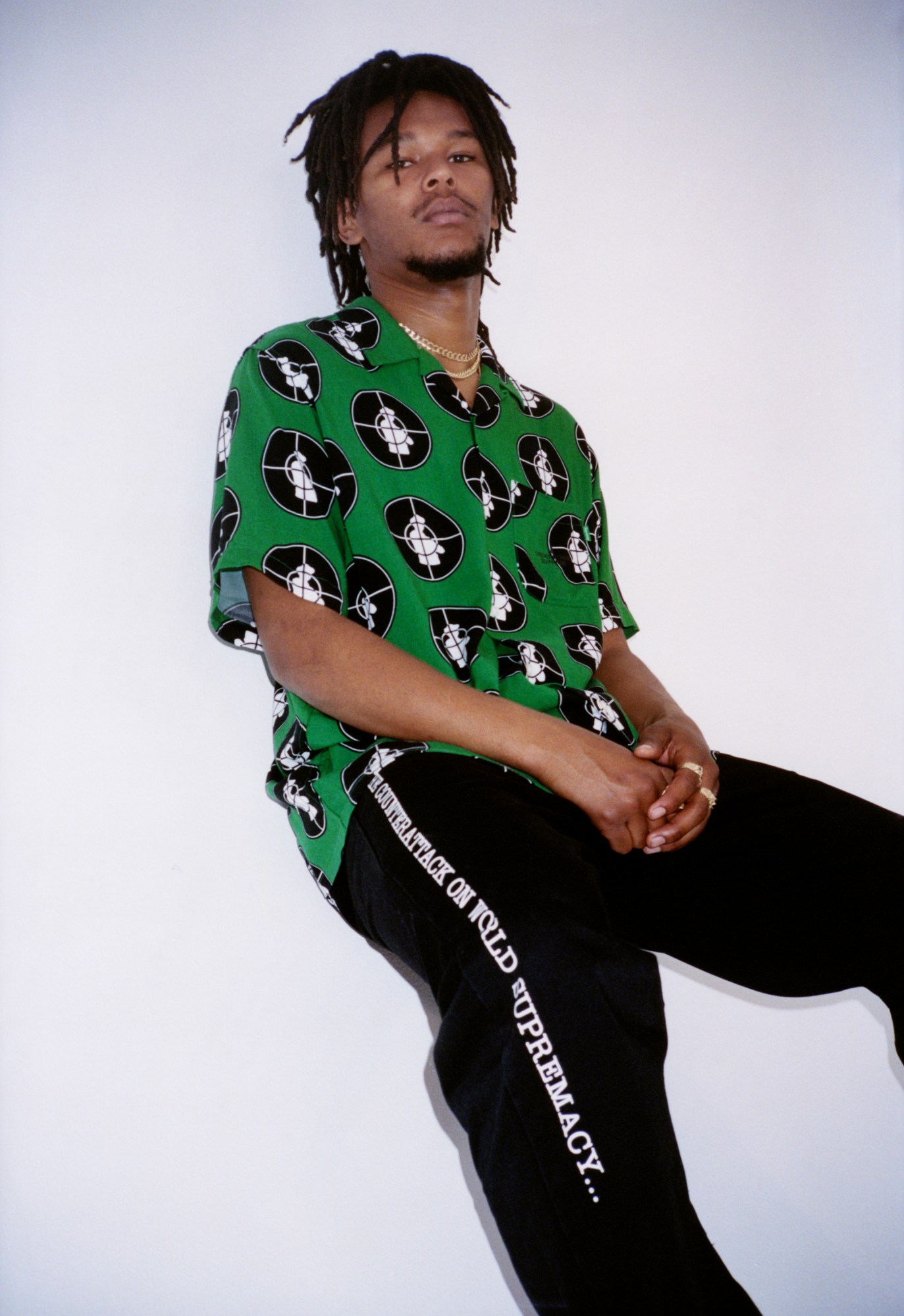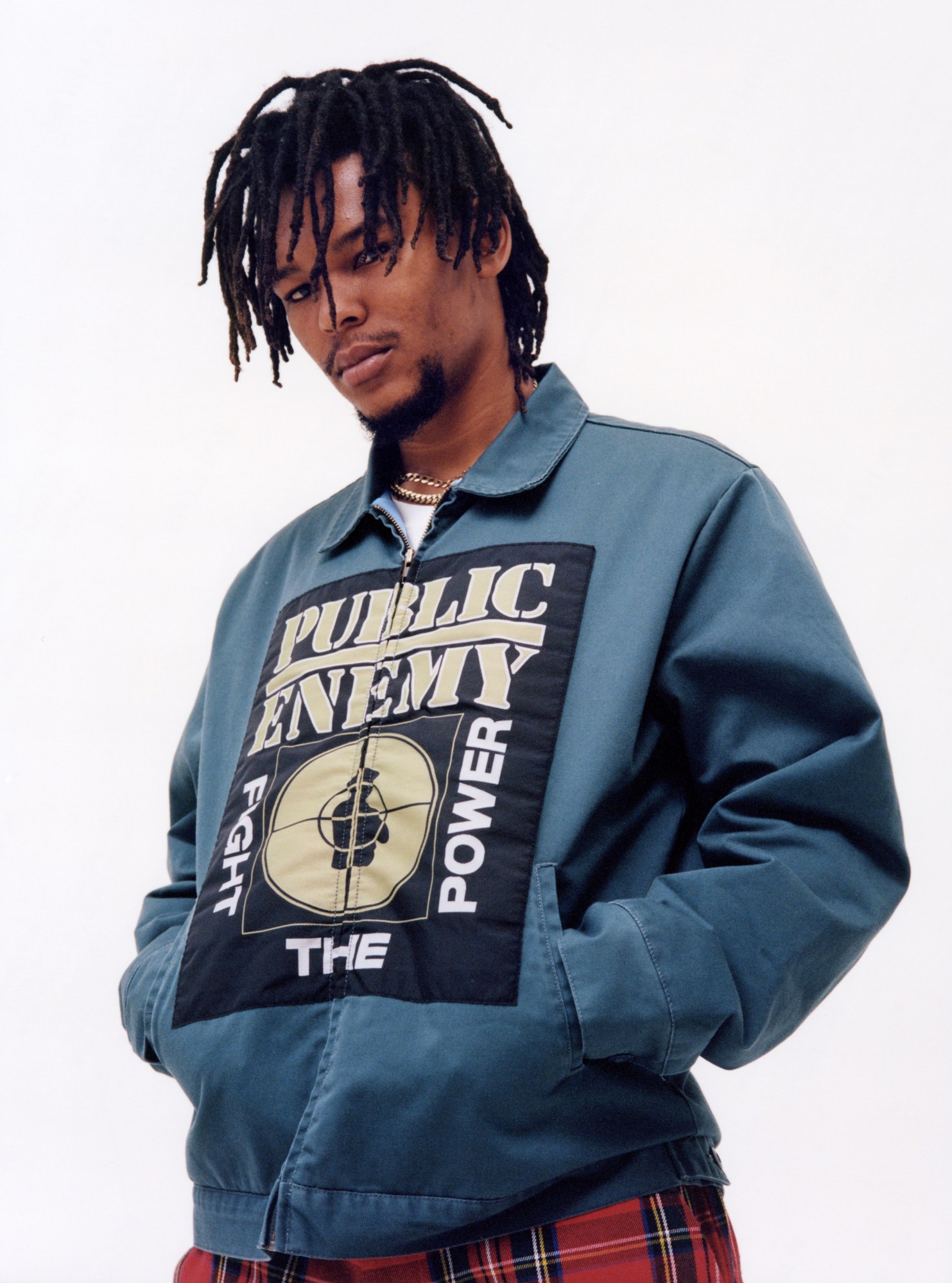Public Enemy galvanised an entire generation to stand up and take notice of the racist injustices around them in the 80s. They provided the world with hip-hop protest anthems that endure today; invectives against police brutality, institutional racism, white supremacy. Songs that dealt with the fears, frustrations and realities of being a black man living in Republican dominated America. They created a sound that still resonates decades later.
Founding members Chuck D and Flavor Flav met in college studying graphic design, started making music together while DJing at the student radio station, and were signed by Rick Rubin to Def Jam Records after making their first demo. Enjoying instant success with their debut Yo! Bum Rush the Show, their follow ups, It Takes a Nation of Millions to Hold US Back and Fear of a Black Planet, made them the most radical band of their era.
The latter’s album cover, by black NASA illustrator, B.E. Johnson (which sees the ‘black planet’ eclipsing planet Earth as we know it), has now been immortalised in a new collaboration with Supreme and Jun Takahashi’s Undercover. We sat down with Chuck himself to talk about the legacy and impact of Public Enemy.

Tell us about growing up in Roosevelt, New York. What did you see? How did you spend your days? How did it shape you?
It was free. We had a feeling of independence there. We moved from Queens in NYC out to Long Island, and it spaced out my life. It was a completely unique experience in Black America at that time — people felt that in Roosevelt we had a chance to do it a little different from our parents who lived in the city.
You attended a summer programme called the Afro-American Experience, taught by Black Panthers and student radicals, how did that shape your way of thinking?
It made us think differently about what was happening United States. We were young and influenced by it, so we challenged teachers when we got back to school. It was immediately effective, maybe too effective though, because they ended the programme. It shaped the lives of everybody who lived in the area, especially those of us who became Public Enemy.
You said in an interview, that you have always operated outside the circle, attacking it and when you got inducted into the Rock and Roll Hall Of Fame, that you got properly curated. What did you mean by that?
We always wanted to see rap music and hip-hop treated and respected as real music. It wasn’t about us, it was about we. We were able to come in and say, ‘okay this is where this music comes from, you’re going to pay attention to it instead of thinking that it’s going to be a fad, that it’s going to disappear and go away.’ It wasn’t an individual achievement — we felt that the Rock & Roll Hall of Fame induction was a win for everybody, not just Public Enemy. We all won.

Public Enemy was built on the foundations of speaking out. Long before it was ‘cool’. Why was it important to you?
We were taught to speak out and speak up for ourselves because we also knew that no one else would. We felt that at an early age. In my family I was encouraged to think for myself, be independent, and speak out. We were taught to be fearless when talking about ourselves and not be ashamed, and that goes a long way…
Where was America at when you wrote Fear of a Black Planet? And where were you at as a person?
We were able to tour the world for the first time in 87, and seeing the world, we realised that the United States of America’s point of view was not how the world operated, was not how everybody worked with each other to co-exist on the planet. With Fear Of A Black Planet I made up my mind that I was going to be able to speak the truth for those who didn’t have a voice.
Systematic racism, police brutality, these things rage on, do you think we will ever get to a place where we will see a shift in power?
Yes, things should get better, they should be getting better faster but we need to educate people about the past, so we don’t keep on making the same mistakes. Lack of education keeps the institution of racism alive, from policing to the government. Only knowledge and wisdom can eradicate that. That’s the message behind Don’t Believe the Hype, you’ve got to challenge the information you’ve been given.

What do you think are the most important things Public Enemy achieved?
To make people look at human beings as human beings, not on race lines. We wanted people to realise they weren’t inferior because they were darker. Fear Of A Black Planet said there’s already a world of colour and got people to be able to say, ‘I’m a human being. I’m not going to be put in a box by anybody.’
Do you think you’d be able to create an album like Fear of a Black Planet now?
We did it. There’s no need to do it again. There needs to be other things that add to it. Can I make a rap record resonate at the age and stage that I see the world in now? That’s the question I ask myself.
What about hip hop as it stands today? What do you think its role is in 2018 in America? And are there people who can carry on spreading the same message that you were?
Artistically, it’s a beautiful art form, but it’s been badly administered. There’s a lack of knowledge and information about the art form of hip-hop. It hurts because I think we can do a better job.
You’ve had a long-standing relationship with Supreme and collaborated with them before. What about the brand makes it something you want to go back to?
This collaboration shows the worldwide impact of Public Enemy, Public Enemy is about telling the world what state it’s in. Where culture is at. Supreme understands that.
The collection will be available in-store NY, Brooklyn, LA, London, Paris and online 15 March. It will then be available in Japan on 17 March.
